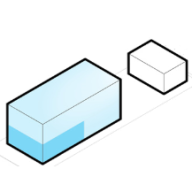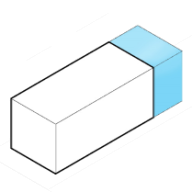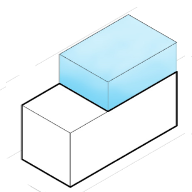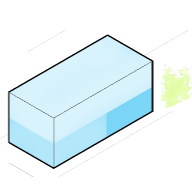Development Opportunity for
346 El Camino Del Mar, San Francisco, CA
192% Potential
($6,901,852 Untapped Value)
This property is a Dwelling designated as a Single Family Residential unit on a lot of 3,998 sqft. It has 3 stories, 10 rooms, 2 bathrooms. Property has a total as-built area of 5,767 sqft of which 3,642 sqft is the conditioned area assessed for property taxes.
Development Options for
346 El Camino Del Mar, San Francisco, CA
What are the local zoning regulations for 346 El Camino Del Mar ?
RH-1(D) (RESIDENTIAL- HOUSE, ONE FAMILY- DETACHED)
Dwelling Unit Density Exception is a new ordinance in San Francisco that allows 4 units on any RH lot and 6 units for corner lots if the project follows certain restrictions.
The One-Family (Detached Dwellings) Districts feature lots with greater width and area than other city parts, hosting single-family houses with side yards. Development often occurs in sizable tracts, exhibiting similarities in building styles, and narrow streets following hill contours. Private covenants in some cases guide development and contribute to maintaining the character of street areas.
Permitted Residential Uses: ADU, dwelling units (one unit per lot), intermediate length occupancy, single room occupancy, student housing and senior housing.
Permitted Non-Residential Uses: Agriculture (neighborhood), passive outdoor recreation, child care facility, public facilities, residential care facility and wireless telecommunications services facility.
What is the maximum height for 346 El Camino Del Mar ?
40-X
No portion of a dwelling can exceed a height of 40 feet, except that the permitted height has to be reduced to 35 feet where the average ground elevation at the rear line of the lot is lower by 20 or more feet than at the front line. The height is measured by taking a point at the centerline of the building or, where the building steps in relation to a street that is the basis for height measurement. Separate points need to be taken at the centerline of each building step. The upper point is the highest point on the finished roof in the case of a flat roof, and the average height of the rise in the case of a pitched or stepped roof.
What are the ADU regulations for 346 El Camino Del Mar ?
ADU eligible
Accessory Dwelling Units (ADUs), also called secondary units, in-law units, or cottages, are units added to existing and new residential buildings. Adding an ADU to your property can provide several benefits, such as providing housing for family members, simplifying your lifestyle, and increased financial flexibility.Learn more about building ADU in this article
What neighborhood is 346 El Camino Del Mar located in?
Sea Cliff, San Francisco
Sea Cliff homes are almost as famous as the folks living in this neighborhood because the architecture and Bay views are some of the city's most stunning.
It is adjacent to the Pacific Ocean and Baker Beach, southwest of the Presidio of San Francisco, and east of Lincoln Park.
Houses in the Sea Cliff neighborhood are large and many offer views of the Pacific Ocean, the Golden Gate Bridge, and the Marin Headlands. A small public beach named China Beach and the national park Land's End are located in the neighborhood.




